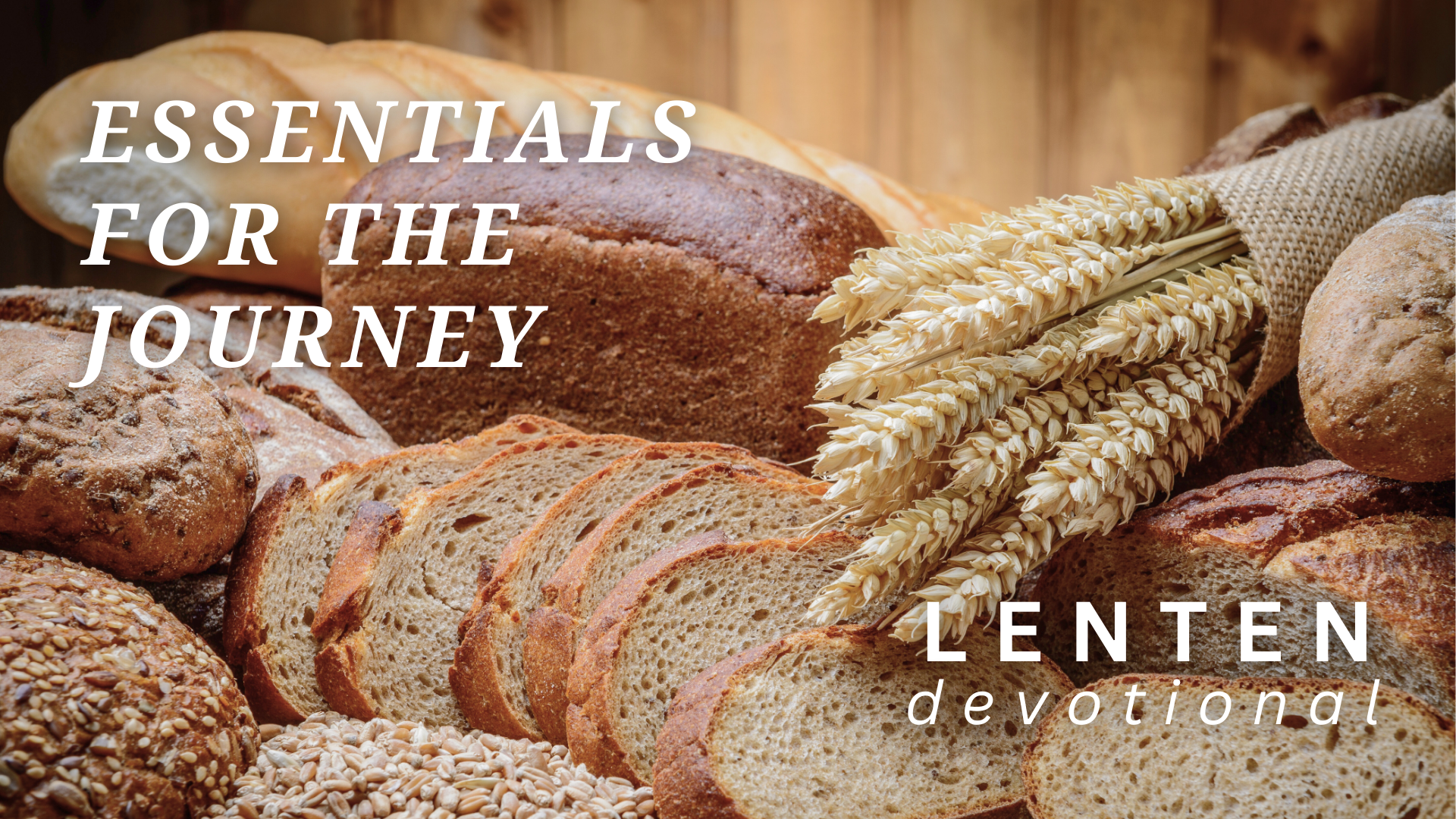Essentials for the Journey
Week 3 of Lent – Bread: Finding Nourishment
Then Jesus said to them, ‘Very truly, I tell you, it was not Moses who gave you the bread from heaven, but it is my Father who gives you the true bread from heaven. For the bread of God is that which comes down from heaven and gives life to the world.’ They said to him, ‘Sir, give us this bread always.’ Jesus said to them, ‘I am the bread of life. Whoever comes to me will never be hungry, and whoever believes in me will never be thirsty.
—John 6:32-35
Written by Pastor Rushan, Senior Minister
What is your favorite thing to eat? Is it something savory or sweet? Hot or cold? Nutritious or junk food? Unfortunately many of us aren’t very good at choosing food that will nourish us. Many people’s favorite foods are laden with fat, sugar and quick release carbs …… In the same kind of way we are equally bad at choosing spiritual nourishment. We choose things that will give us a quick boost but have no lasting value; they make us feel good for a while but quickly fade and lose their worth.
In the scripture passage from John’s Gospel Jesus points us to what true spiritual nourishment is and where it comes from. As is often the case in the Gospels, the crowd seems to misunderstand him completely and thinks he is talking about physical bread rather than spiritual nourishment. The people are incredibly keen to get their hands on a loaf of this miraculously lasting bread, since it would make their lives so much easier.
They have come looking for Jesus because he has just fed five thousand people miraculously; it isn’t hard to see how they might have thought that he was now telling them about a new kind of miracle – long-life bread! But Jesus points out that they have got excited about the wrong thing: they should be much more excited about the prospect of being eternally spiritually nourished by Jesus, who fills us to the brim and answers all our longings.
One of the intriguing features of this passage is the word John uses for the bread that Jesus gave to the five thousand. John tells us that the bread was barley loaves, the bread of the poor: they were low quality and hard to eat and digest. In contrast, Jesus is not poor quality, economy barley bread but the bread of life; the best quality available. His bread is also not like the manna of the wilderness when the Israelites wandered in the desert for 40 years after escaping from the Egyptians. The people were starving in the desert so God provided miraculous food for them to eat (the word ‘manna’ in Hebrew literally means ‘what is it?’). The important thing about the manna, however, is that it did not last and by the morning had got spolied. In contrast, Jesus, the bread that brings life, lasts not just until the next morning but forever and ever. So what kind of nourishment do you look for? Poor quality, economy nourishment that keeps you alive but little else? Nourishment that’s fine while it lasts but is gone in the morning? Or the finest quality, life-bringing nourishment that lasts on and on? When you think back over the kind of spiritual nourishment you have in your life, what is it most like? A dry crust? Junk food that is great while you eat it but leaves you hungry in a few hours? Or something much finer and long lasting that keeps you going through the ups and downs of life?
Eating is a profound, human experience. It is physical, emotional, psychological, and spiritual. Deep in our unconscious minds, food becomes associated with something far deeper than food. It is a symbol for love. As we are fed by acceptance, forgiveness, and love, we can learn to feed one another and all the others we encounter, with the living “bread” of acceptance, forgiveness, and love. In doing so, we can live out John’s Gospel’s claim for Jesus: “I am the bread of life.”






